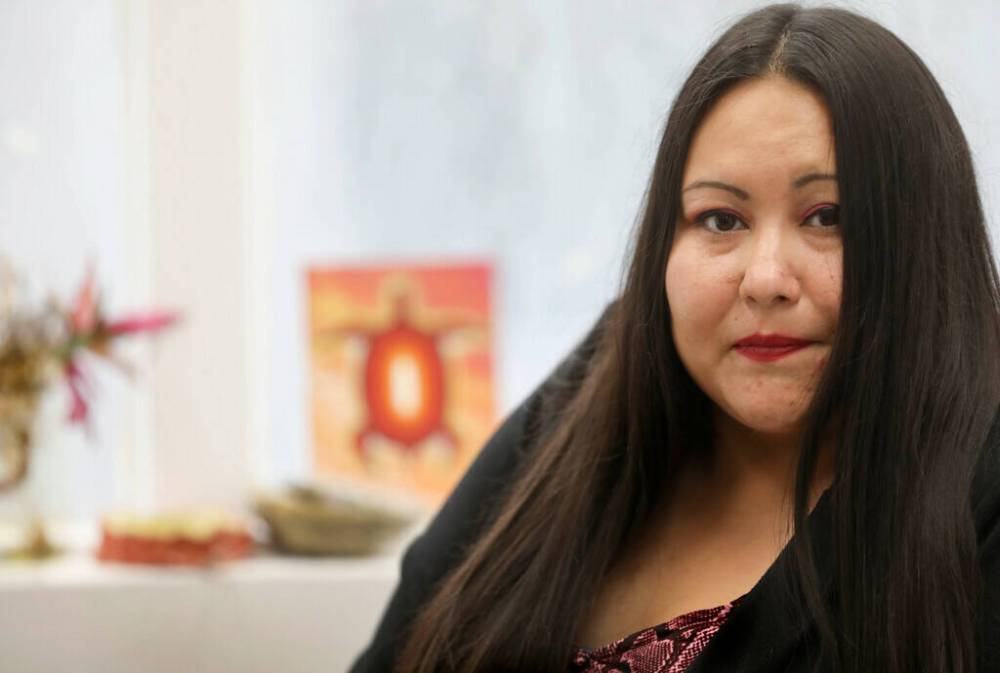Demands for action seek election spotlight for poverty issues
Advertisement
Read this article for free:
or
Already have an account? Log in here »
To continue reading, please subscribe:
Monthly Digital Subscription
$0 for the first 4 weeks*
- Enjoy unlimited reading on winnipegfreepress.com
- Read the E-Edition, our digital replica newspaper
- Access News Break, our award-winning app
- Play interactive puzzles
*No charge for 4 weeks then price increases to the regular rate of $19.00 plus GST every four weeks. Offer available to new and qualified returning subscribers only. Cancel any time.
Monthly Digital Subscription
$4.75/week*
- Enjoy unlimited reading on winnipegfreepress.com
- Read the E-Edition, our digital replica newspaper
- Access News Break, our award-winning app
- Play interactive puzzles
*Billed as $19 plus GST every four weeks. Cancel any time.
To continue reading, please subscribe:
Add Free Press access to your Brandon Sun subscription for only an additional
$1 for the first 4 weeks*
*Your next subscription payment will increase by $1.00 and you will be charged $16.99 plus GST for four weeks. After four weeks, your payment will increase to $23.99 plus GST every four weeks.
Read unlimited articles for free today:
or
Already have an account? Log in here »
Hey there, time traveller!
This article was published 05/07/2023 (891 days ago), so information in it may no longer be current.
Anti-poverty advocates are pushing to make the issue a top priority for provincial election candidates.
On Wednesday, members of the Make Poverty History Manitoba coalition and supporters gathered at Manitoba Harvest in Winnipeg to unveil 10 demands for action ahead of the 2023 vote.
“It is very important to keep poverty on the political agenda for the upcoming election,” coalition spokesperson Desiree McIvor said.

RUTH BONNEVILLE / WINNIPEG FREE PRESS
Make Poverty History Manitoba spokesperson Desiree McIvor: “It is very important to keep poverty on the political agenda for the upcoming election.”
As an Indigenous culture programmer at 1JustCity, a local social justice non-profit, McIvor said they witness the harsh impact of poverty each day.
“We end up with a lot of the people that are forgotten, that the safety net doesn’t help,” McIvor said. “We end up catching the people that fall through the cracks.”
The 10 demands touch on employment, housing, education, mental health, the criminal justice system and other policy areas. Special consideration was given to the disproportionate number of Indigenous Manitobans living in poverty.
In the lead-up to the Oct. 3 election, Make Poverty History Manitoba plans to hold an all-candidates debate on the topic of poverty reduction.
While drafting the policy recommendations, the coalition consulted with community organizations, advocates and people with lived experience of homelessness.
Manitoba has, among other issues, the highest rate of child poverty among the provinces, and social service organizations have been feeling the pinch.
In 2022, Manitoba Harvest logged a 50 per cent increase in the number of clients with jobs who were accessing its services — a surge it attributes to inflation and the rising cost of living, among other factors.
“It’s very hard to get one food box per month as a Harvest client for about three, four days,” said Molly McCracken, director of the Canadian Centre for Policy Alternatives (Manitoba).
“(For) the rest of it, people need to rely on community kitchens, and social assistance rates are simply much too low for people to survive on.”
At Main Street Project, cuts to Manitoba Housing and rising rents have led to more precarity among those seeking its services, director of community initiatives Kate Sjoberg said.
While the non-profit community health agency has adapted to better meet the needs of its clients, it has encountered significant roadblocks.
“We’ve really structurally changed the way that we work, especially in shelter, toward an enthusiastic, housing-first approach,” Sjoberg said. “That doesn’t really matter if there aren’t housing options that work for people.”
Josh Brandon, a member of the steering committee, said Make Poverty History Manitoba’s 2012 housing campaign helped kick-start the provincial Rent Assist program that helps low-income residents afford market rent.
Now, it wants the government to address the basic needs budget, which covers food, transportation and clothing, to reflect a livable rate.
“Fifteen years ago, it was $195 a month. It’s recently been increased to $245 a month, but that is so inadequate when you think about how the cost of food has increased, the cost of clothing and all those other necessities,” Brandon said.
Manitoba’s 2022-23 Poverty Reduction Strategy includes the rollout of $12 million in affordable housing grants, an additional $200,000 towards child nutrition programs, and more funding toward employment programs.
In 2022, the province said it would revamp the Employment and Income Assistance program to focus on employment opportunities. While the Make Poverty History report also recommends transforming EIA, it suggests the province create an 18-month basic needs benefit.
“We’ve seen some ad hoc increases here and there to different programs, but overall, there’s been no comprehensive strategy to work towards livable incomes,” Brandon said. “We’ve seen limited support for initiatives like mental health.”
Paula Keirstead, a community activist, stressed the need to look at poverty from a disability justice lens.
Keirstead, who was one of the founders of Make Poverty History Manitoba, said accessibility concerns are often overlooked in poverty reduction strategies due to accommodation costs and being viewed as a minority.
“If we don’t mention the unique needs that will ensure whatever you’re doing is accessible and inclusive… people with disabilities get left behind.”
cierra.bettens@freepress.mb.ca





